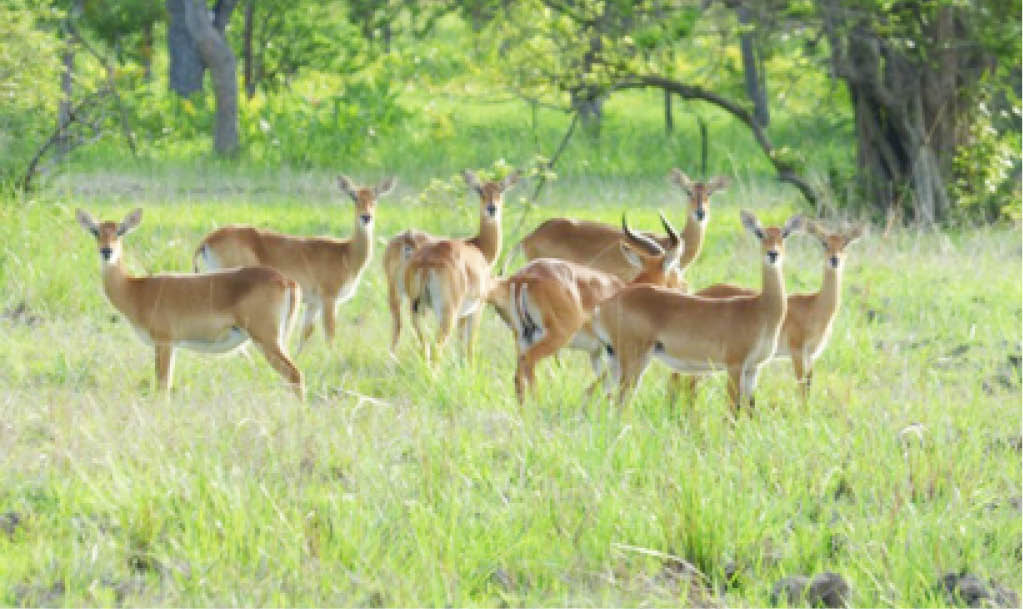As a country, Nigeria is blessed with beautiful landscapes, ranging from tropical rainforests and mangroves in the South (which is believe to be among the largest in the world), to mountain ranges in the Mambilla plateau, as well as savanna and desert in the far North-East. The country falls within the Guinean forest of West Africa, a global biodiversity hot-spot that provides a unique habitat for many endangered West African wildlife species. The country harbours important bird species, just as mammals, butterflies, reptiles and 91 endemic plants (species found nowhere else) have been documented.
Our protected areas (PAs), which include parks, reserves and sanctuaries, shelter most of our wildlife species. According to a report by the World Commission on PAs, Nigeria’s PA network covers 14.01per cent of the total mass. While for many years, these PAs play a vital role in the protection and conservation of our wildlife species as well as provisioning of supporting and ecosystem services, they are under serious pressures than ever in recent times. Most prominent among these is human population growth, which is putting too much pressure on the wildlife resources. The increased demand for bush meat has led to severe decline of our wildlife species, particularly in the southern part of the country. Another menace is the use of wildlife species parts in traditional medicines, where they are sourced from PAs and sold at exorbitant prices. While doing these to satisfy our greed and needs, we forget the fact that the next generation will pay for the price of these losses.
On the other hand, for the fact that 70per cent of Nigerians depend on fuel wood, its increased demand has caused various disturbances in most of these PAs and their sorroundings. In addition, increased demand for timber by the Asian countries has caused massive deforestation and degradations in our natural environment, haven for our wildlife species.
In the Niger Delta region, pollution and habitat degradation and loss due to oil explorations has caused massive loss of natural habitats, critical nursery site for wildlife species. In the Hadejia-Nguru Wetlands, for instance, a notorious grass has already degraded and taken a significant part of the wetland, an important site not only for resident bird species but for migratory species as well.
Federal and state governments that are the custodians of our PAs, and, of course wildlife species, neglected the management of these areas. Some of these PAs are not even connected to national power grid, and so, can go for weeks without light.
In the Dagona Waterfowl Sanctuary, a section of the Chad Basin National Park has no power supply for nearly a decade, even with the excellent chalet laid down. The Obudu Cattle Ranch, one of the country’s ultimate tourist attraction, has no light for years, and the infrastructures are left to decay.
The Kainji Lake National Park is a place where one hardly gets in contact with the outside world because of very poor mobile network. Our great conservation warriors (park rangers) are also experiencing distinguished challenges. Among the key challenges are the general lack of sound working equipment, particularly patrol vehicles, which often have to be pushed in order to start, and the patrol only lasted for few days of the week due to insufficient fuel; lack of safety tools, especially modern weapons to defend their dear lives against poachers and the deficiency in the application of current knowledge on Protected Area Management, among others. This is worsened with very poor support from both federal and state governments to sponsor the protected area managers abroad, or regularly organise local workshops, seminars and trainings to tap from the use and applications of modern techniques and innovations in protected area management from experts.
Our PAs lack sufficient work- force to protect wildlife, and graduates of wildlife courses are roaming the streets, with fresh ideas untapped. In some PAs, especially within state governments, when old staff die they are hardly replaced.
In some PAs, wildlife graduates and those who have diplomas and certificates, as well as those that do not but are keen about wildlife conservation, are volunteering to protect our wildlife with no or very little incentives and motivations. In most cases, the protected area managers sponsor themselves in order to keep in check with the current challenges as well as advancement in wildlife management and conservation. Gone are the days when we will sit back and watch our wildlife species disappear.
Recently, insecurity in and around PAs emerged as the greatest threat to our wildlife conservation. For instance, the Kamuku National Park is one of no-go-areas because it has become a hideout for bandits, cattle rustlers and kidnappers. The Sambisa Game Reserve has long been taken over by Boko Haram. The Kainji Lake National Park and Chad Basin National Park, as well as Falgore Game Reserve, are also danger zones for protected area managers, researchers and visitors. The areas around the Lake Chad basin are some of the most critical habitats for aquatic and other terrestrial wildlife species, yet, it is a no-go-area.
Recently, the Nigerian Army and Nigeria Park Service teamed up in protecting our parks and reserves. However, the question we should ask ourselves here is: What is the fate of our wildlife species, PAs and national heritage? A number of wildlife species have become history in Nigeria. And many are presently declining rapidly, and once lost, can hardly be recovered.
Black rhinoceros once roamed Adamawa, Borno, and Bauchi. The West African giraffe and cheetah can no longer be found anywhere in Nigeria. Vultures, important natural environmental cleaners are on the verge of becoming extinct.
The bird and black-crowned crane (the officially recognised national bird) that were common around the North have all vanished. Lions, crocodiles, jackals, gazelles and hyenas that were common have all been extirpated in most PAs. Lions have very low viable population in the Kainji National Park and Yankari Game Reserve.
In the Falgore Game Reserve, the Buffalo and other large mammals have disappeared completely.
The Cross River gorilla, which are found only in Nigeria and Cameroon, are at risk of disappearing forever because scientists estimated that there might be 200 to 300 of them. This ape is considered as the most endangered primate in the world. The pangolins are being heavily poached and traded for their scales, pushing them into extinction. Globally, Nigeria is believed to be a country mostly involved in pangolins trade.
The Nigerian chimpanzee (with number less than 9,000) is facing the same scenario due to extreme loss of habitat as a result of deforestation across all its ranges.
The elephants, because of their migratory nature, and for the fact that we are encroaching on their natural habitats, we are increasing conflicts with them, and whenever man and wildlife collide, wildlife suffers. The list of the wildlife crises goes on. However, thanks to government and some non-governmental conservation organisations like the World Wildlife Fund (WWF), Wildlife Conservation Society (WCS) and National Park Service that are making tireless efforts to conserve these iconic but magnificent species.
Federal and state governments should, therefore, invest heavily and provide a holistic approach to wildlife conservation. We must do whatever it takes to protect this national heritage, our pride, our future. What a shame if in our generation these heritages vanish.
Our wildlife and PAs, if well conserved and managed, can provide an avenue for research studies and tourism.
PAs provide clean air and water, healthy soil, wild food and medicines. They help mitigate against extreme weather events (climate change, flood), maintain functioning ecosystem and provide shelter for plants and animals to adapt to an ever-changing world.
Ringim wrote from the Biological Sciences Department, Federal University, Dutse, Jigawa State
[email protected], 08060823804

 Join Daily Trust WhatsApp Community For Quick Access To News and Happenings Around You.
Join Daily Trust WhatsApp Community For Quick Access To News and Happenings Around You.


